UCS Government Structures
Interim Emergency Transitional Authority
The United Cape States is pursuing the path of legal secession from South Africa. After careful analysis of international law and secession precedents, the UCS have identified a process that fulfills the requirements to legally secede from South Africa. One of the process steps is establishing an interim Emergency Transitional Authority. This interim authority will facilitate the drafting of an Interim Constitution to oversee the definitive referendum and the transition to a new country. The authority will be replaced by elected governmental structures soon after secession.
Interim positions are currently filled by patriotic Capelander volunteers, to staff the various branches of District, State and Central Interim emergency Government.
Levels of Interim Emergency Government
Branches of Interim Emergency Government
Executive
The Executive consists of the President, the Vice President, and the Cabinet Ministers at the central level, and the State Governors, their Cabinets, and Commissionaires of the District Councils at the state level. It also includes all government departments and civil servants at both central and state levels.
The responsibility of the Executive is to transition the Central and State Governments, in the best interests of its citizens within the constraints of the Constitution and the law.
Legislative
The United Cape States governance system consists of three Houses, namely the Senate, the House of Representatives and the Aboriginal Council. These three houses form the Legislative Elements and is responsible for reviewing existing legislation suitability for transition into an Independent Cape.
- Senate is the upper chamber.
- It provides advice and consent to the treaties and major presidential appointments.
- It focuses on foreign policy.
- Members are called senators.
- There is a fixed number of Senators despite the population of the particular state.
House is the lower chamber. Members are called Representatives.
The number of Representatives is proportional to the population of the particular state.
The Aboriginal tribes of the Cape are groups of people that descended from the Aboriginal people of the Cape. Many of these groups have formed as a result of intermarriages with slaves, indentured servants, and immigrants (from mainly Europe).
The Aboriginal Council is an advisory assembly and is recognized by the Federal and State governments as providing a voice for ethnic affairs.
The Council is made up of one nominee of each of the respective recognized Aboriginal tribes (as outlined in the Interim Constitution of the United Cape States), where each state constriction will recognize specific tribes in the UCS Constitution as Aboriginal in their specific state. There will be a total of 16 members.
The Tribal Council of each tribe will nominate representatives in a manner that is based on their specific traditions or defined rules.
The Judiciary
Judicial authority is vested in the courts. The interim Judiciary will facilitate the transition to:
- The Supreme Court
- The Federal Courts
- The State Courts and
- District Courts
Public Protector
The office of Public Protector shall be established to investigate and to protect the public against maladministration, corruption, or criminality from any branch of government, or the improper conduct by any person holding or performing any public function.
The Public Protector shall hold Central and State government, or any other organ of any State fully accountable for their actions and or omissions through its remedial action, ensuring consonance with the constitution.
The presence and mandate of the Public Protector will strengthen the faith of the citizenry in their government’s integrity by ensuring that all state organs remain perpetually accountable, fair, and responsive in their dealing with either the citizens or service delivery issues.
This mandate includes ensuring integrity and general good governance in the management of public resources.
The Interim Public Protectors will facilitate the transition to elected Public Protectors, who will be accountable ONLY to the people who shall elect:
- A National Public Protector
- The State Public Protectors and
- The District Public Protectors

